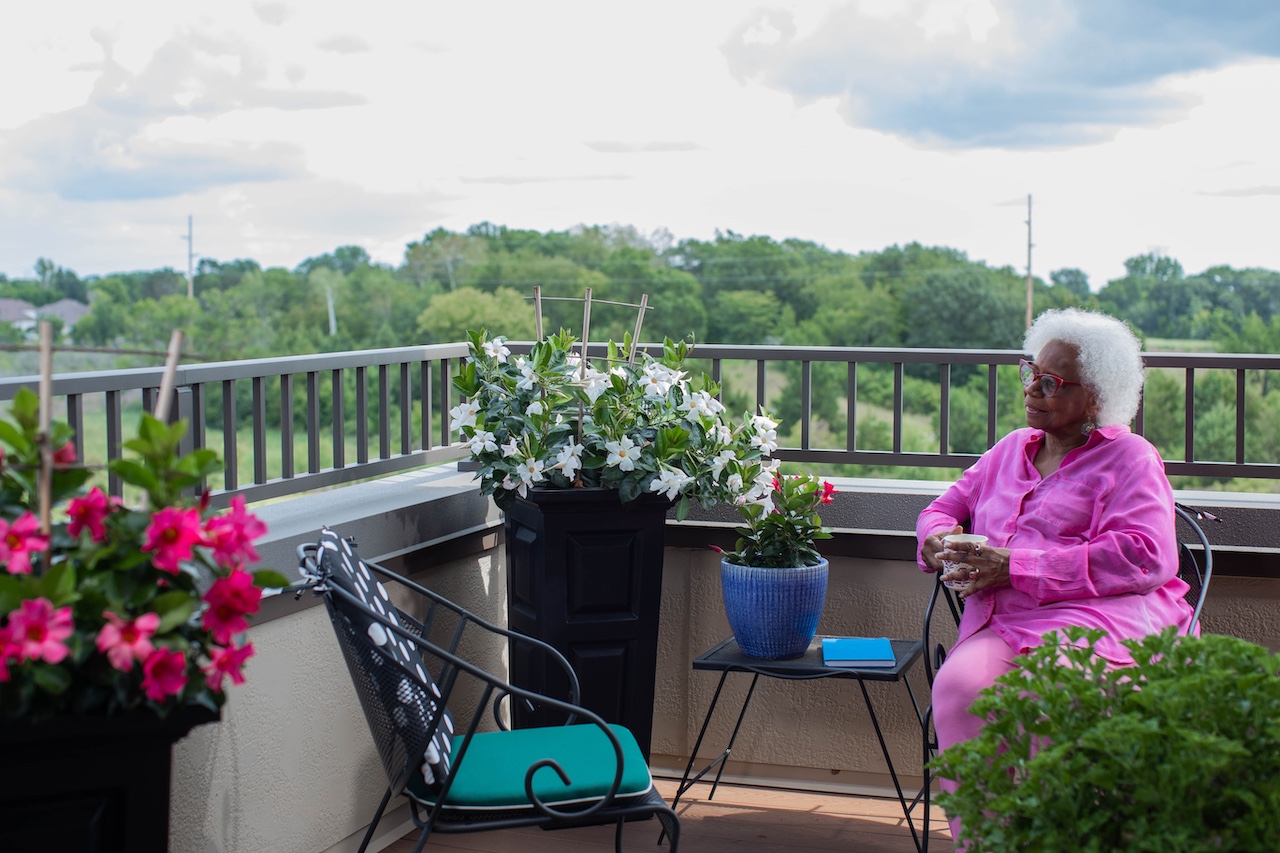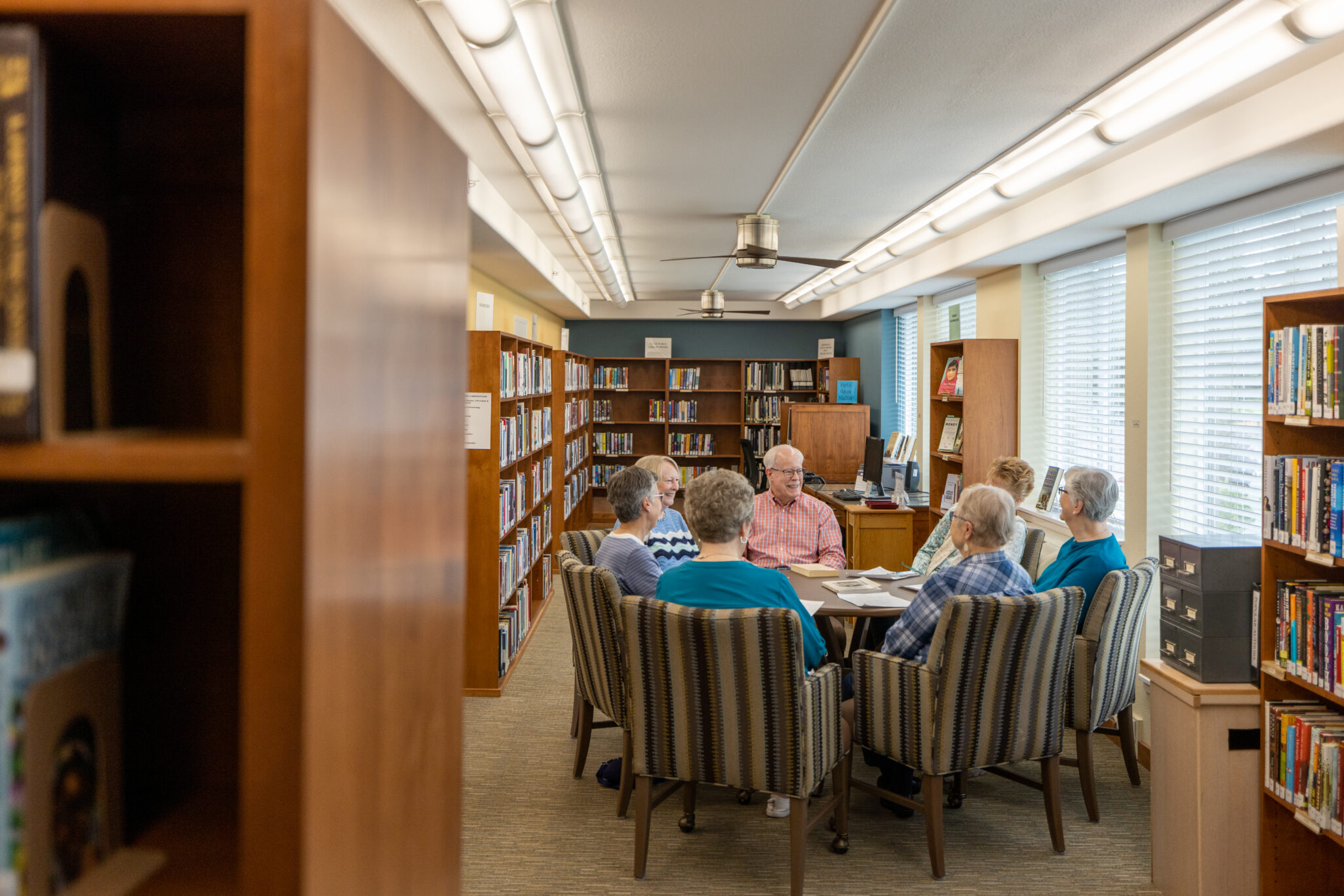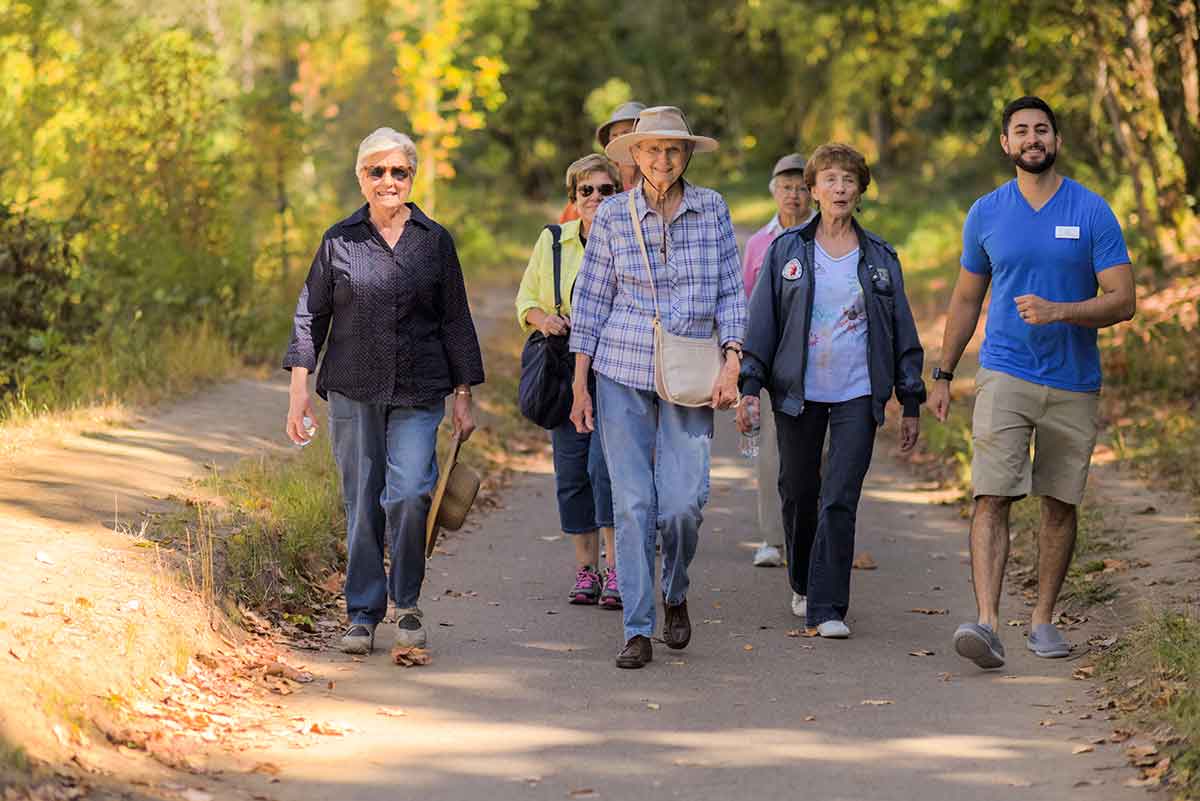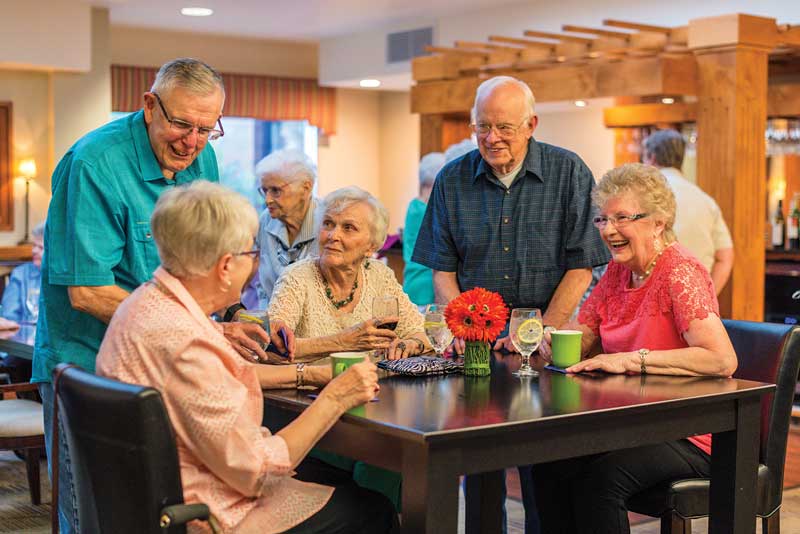Understanding the health risks of social isolation and loneliness in older adults

Colder months and short days make everyone spend more time alone. It’s hard to find things to do or motivation to leave the comfort of your own home. But continued time indoors — and away from social activities — can onset serious health risks of social isolation and loneliness that older adults and those who care about them should be aware of. Capital Manor is here to keep seniors connected, comfortable and healthy.
This blog will explore the risks of social isolation and loneliness and offer tips for staying connected.
What is the difference between social isolation and loneliness?
It’s normal to feel lonely as an older adult. In fact, nearly one in four adults over the age of 65 are socially isolated. Social isolation is defined as the lack of relationships with others and little to no social support or contact, while loneliness is feeling alone or disconnected from others.
What are the health risks of social isolation and loneliness?
According to the Centers for Disease Control and Prevention, the health risks of social isolation and loneliness include:
- Heart disease and stroke
- Type 2 diabetes
- Depression and anxiety
- Addiction
- Suicidality and self-harm
- Dementia
- Earlier death
While the mental health of individuals of any age can suffer as a result of feeling isolated or lonely, it is augmented in senior populations. These feelings take a toll on older people physically and mentally. But there are ways to combat these feelings of social isolation and loneliness.
Ten tips for staying connected
Fostering connections with others can prevent social isolation and loneliness. It can be hard to think of ways to stay engaged and involved — but there is a world of possibilities to prevent these feelings. Ten tips for staying connected are outlined below, informed by the National Institute on Aging.
- 1. Spend time with family.
Sometimes all we need is a hug from those who love us most. Spending time with family, even for just a meal, can lift our spirits and remind us that we are loved. Call a family member and schedule a time to see each other. For long-distance families, try virtual meetings or video phone calls to make that face-to-face connection.
- 2. Make plans to connect with friends.
Get a time on the calendar to connect with old friends. Putting a plan together ensures you follow through and gives you something fun to look forward to. Grab a coffee, see a new movie, attend a community event, go for a walk, or simply connect at home.
- 3. Find a volunteer opportunity that you connect with.
Helping others can combat feelings of loneliness. Find a volunteer opportunity in your community that you can connect with. Take time to give back to your community and connect with other volunteers who share your interests and values.
- 4. Attend a class or workshop to meet new people.
It’s never too late to learn a new skill. Crafting classes, book clubs, cooking workshops and more are great ways to connect with new people or old friends while getting out of the house.
- 5. Stay active.
Keeping your body moving keeps your spirits high. And, it allows you to connect with people through exercise classes, group walks or sports. See what opportunities there are for you to connect with people through activities such as pickleball, Zumba, golf leagues, or whatever activity sounds fun to you.
- 6. Enjoy meals with company.
It’s common to feel lonely when eating alone — food is meant to be enjoyed in the presence of company. Invite neighbors, friends or family over for a meal.
- 7. Care for pets.
Pets are great companions to combat social isolation and loneliness. They are an upbeat presence that bring a smile to our faces. And, according to the National Poll on Healthy Aging, pets help elderly people stay active, connect with others and cope with health issues.
- 8. Find community through religious gatherings.
Churches and other places of worship are a great way to find people with common values to prevent loneliness and isolation. Check with your local church if there are groups you can join or volunteer opportunities to connect with people.
- 9. Find grief support.
Loneliness and social isolation come hand-in-hand with grief. It can be easy to close yourself off from those around you. But, finding support with people who can relate to you and help you navigate that difficult time can help you stay connected.
- 10. Connect online.
While nothing can beat a face-to-face interaction, there are countless tools to combat social isolation and loneliness available online. Video chatting applications such as FaceTime or Zoom allow you to see family and friends no matter the distance.
Capital Manor is here to provide a fulfilling living experience for seniors and can help prevent the health risks of social isolation and loneliness. We provide a plethora of activities to stay connected with peers on the property. Visit or contact the friendliest retirement community in Salem to learn more.




